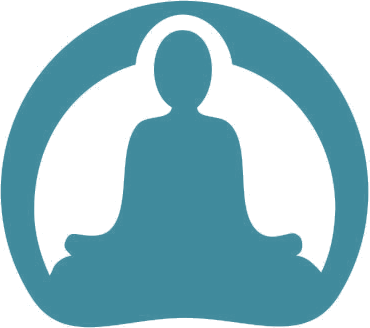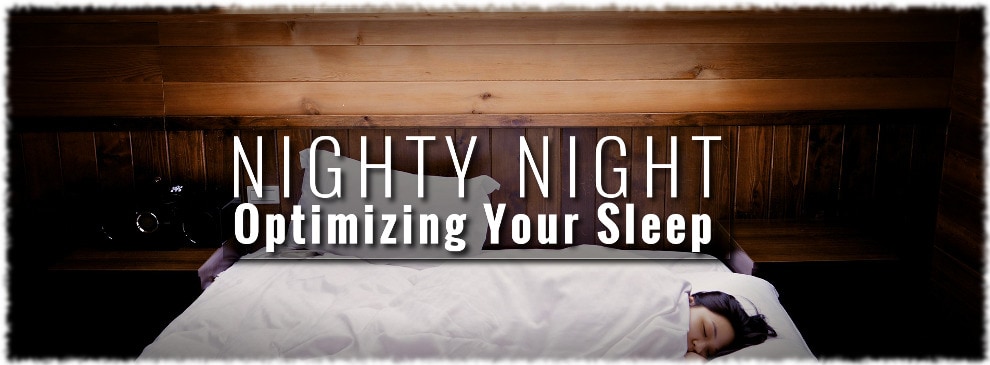How To Sleep Well
Getting good sleep is perhaps the single most important factor in determining our health. It is the time when our bodies run important maintenance cycles and our minds process the events of the day and sort out which information is important and needs to be archived as memory and which details are incidental and can be forgotten. Both the duration of sleep and quality of sleep are important factors to avoid sleep deprivation. While sleep can feel like something that is beyond our control, there are a number of steps we can take during our waking hours that can help set you up for sleep success.
Technology
It is no surprise that our technologies are an enormous influence on our sleep patterns and cycles. While going back in time and eschewing all of the modern tech goodies might seem tempting, there are some simple practices and tools we can employ to minimize the disruption our devices can cause.
Limit Screen Time Before Bed
It seems impossible to avoid screens now that everything from our phones to refrigerators have shiny and bright displays. Exposure to screens can influence our circadian rhythm (Our circadian rhythm is the natural, internal clock that regulates our waking and sleeping cycles. and repeats approximately every 24 hours) by exposing us to light, specifically blue light, which our bodies interpret as light from the sun. Our bodies think: “If the sun is still up, then it’s no time for sleeping!” This light stimulus suppresses the body’s natural production of serotonin, which is one of the biochemical markers that tells us it’s time to sleep. Limiting light exposure after sundown allows our bodies to switch over into a nighttime routine that sets us up for a good night's sleep.
Enable Dark Mode
Try enabling dark mode on all your screened devices. Simply by switching a white background with black text for a black background with white text, you limit the amount of light being thrown from your display. Most operating systems have this type of theme and a number of add-ons or extensions are available for web browsers. It is still a high contrast theme, so readability isn’t compromised!
Blue Light Blocker
Sometimes you just have to use a screen after the sun goes down… in which case, try reducing the brightness of your screen and use a blue light blocker. These apps electronically filter your screen, removing the blue light frequencies from the display. This mitigates the impact of the stimulation caused by the light. It does drastically alter the color balance of your screen, so this is not advised for anyone doing color sensitive work.
Block Notifications
Chirpy, buzzy flashing devices are a sure way to disrupt your sleep. Set up a “Do Not Disturb” schedule on your device to ensure your evening hours are unperturbed. And for those of you who are habitual “phone checkers,” try leaving your phone in a different room. Creating a little space from your device is a useful tactic. As they say, “out of sight, out of mind.”
Practices & Habits
There are a few practices in specific that are absolute game changers when it comes to your improving sleep.
Stimulants
One of the most common ways to cope with feelings of tiredness during the day is to perk ourselves up with caffeine, sugar or other stimulants. While this helps us in the short term, the residual effects of stimulants can interrupt our sleep cycle and compound the problem. Cutting out the use of stimulants can help reset your body, but does come with a few days of feeling extra sluggish. If cutting out stimulants altogether is not an option, try limiting your use of stimulants to the first few hours after waking up.
Regular Exercise
Physical exercise induces a slew of hormonal and chemical responses that reduce anxiety and stress, two factors that can negatively impact our ability to fall asleep. Plus, when you’re tired from a good workout, those soft pillows and blankets are irresistibly comfy!
Yoga Nidra
Yoga nidra is a meditative practice that is the conscious transition from wakefulness to a state of deep restfulness. The practice in and of itself is relaxing and pleasant and from this deeply relaxed state, the transition to sleep is quite easy. Regularly practicing Yoga Nidra before bed is a great way to entrain your body to get ready to sleep.
Environment
Setting up your sleep space properly can make a positive impact on your quality of sleep.
Cool Room
We know that our circadian rhythm responds to light levels, but the temperature or the air also is a key indicator to our bodies. Outside, as soon as the sun goes down the ambient air temperature starts to drop. This cooling signals to our bodies that it is time to sleep. With thermostats, furnaces and insulation, the temperature inside our homes doesn’t respond to the setting of the sun in the same way. Try lowering the temperature inside your bedroom by a few degrees to prompt your sleep response.
Black Out Curtains
Streetlights, security lights and headlights from passing traffic can raise the ambient light level in your bedroom to levels where your body is not sure that it is time to go to sleep. Blackout curtains will keep outside light from disturbing your sleep. They also work well to help you stay asleep in the mornings once the light of dawn gets brighter. If you usually rely on daylight to wake you up, make sure to use an alarm when you start using blackout curtains.
White Noise Machine
A quiet environment is ideal for sleep. However, soundproofing your home can be difficult and expensive. Depending on where you live, traffic sounds, alarms and emergency sirens can be noise issues that you cannot control or mitigate. A white noise machine raises the ambient noise level of your bedroom so that outside noises don’t “peak” as loudly and disrupt your sleep cycle. Any consistent ambient noise will work to this end. Ocean waves, running water, crickets, burning wood and ambient music are all good options. Try a few different sounds and see what noisescape works best for you.
How To Get To Sleep
So now that you have taken all these steps to optimize your sleep, you actually have to go to sleep. The only advice left to give is; “Go to sleep when you’re tired!” Sometimes you will be ready to sleep before bedtime. Sometimes you will stay up later than you would like. Sleep comes when the body is ready and fighting against it is going to do more harm than good.
If there are any recommendations you have for getting a good night’s sleep that weren’t included in the article above, please leave them for the community in the comments below. Sleep tight!



Comments
Existing Comments